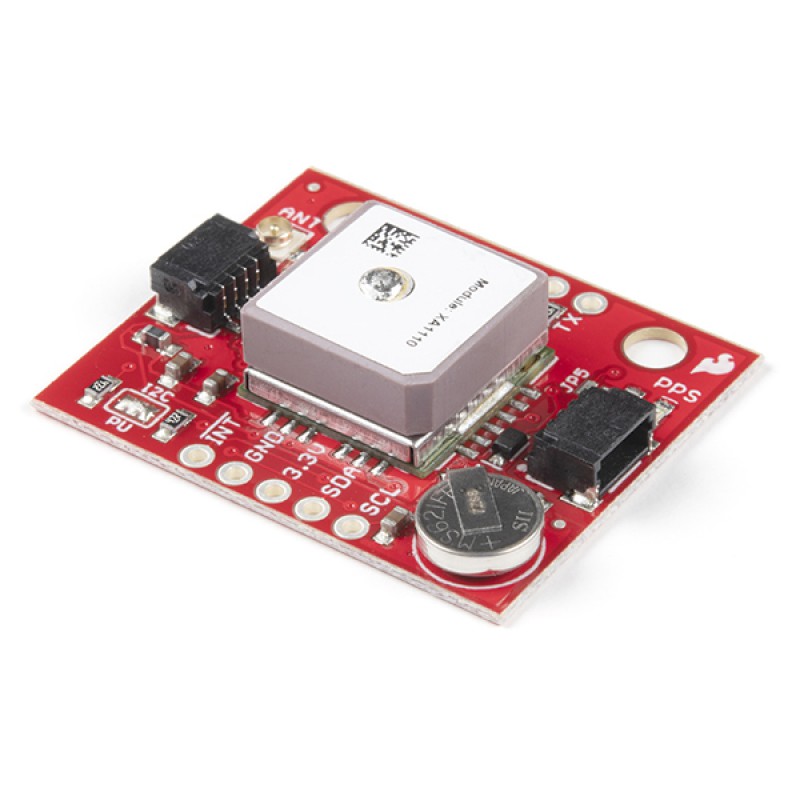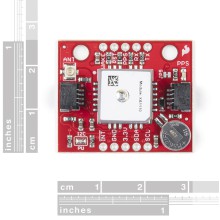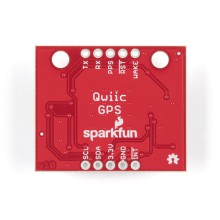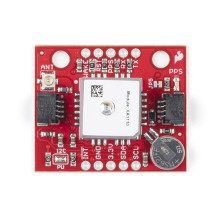The SparkFun XA1110 GPS Breakout is a small I2C-supported module built for easy hookup, thanks to our Qwiic Connect System. Equipped with the XA1110 GPS module from GTOP, this board utilizes the MediaTek MT3333 chipset, loaded with specialized SparkFun firmware that enables both I2C and serial ports simultaneously. Using I2C means you won’t have to tie up your serial port with GPS, leaving it open to other possibilities.
This GPS Breakout supports up to 210 PRN channels with 99 search channels and 33 simultaneous tracking channels. With support of GPS, GLONASS, QZSS, SBAS and more, the onboard XA1110 can provide even more accurate positioning in multiple locations. Additionally, the XA1110 GPS Breakout is configured with an onboard RTC battery that enables a warm-start functionality, giving the X1 just five seconds to first fix, as well as a U.FL connector that provides you the option to hook up an external antenna via a U.FL cable.
NOTE: The I2C address of the XA1110 is 0x10 and is hardware defined. A multiplexer/Mux is required to communicate to multiple XA1110 sensors on a single bus. If you need to use more than one XA1110 sensor consider using the Qwiic Mux Breakout.
The SparkFun Qwiic Connect System is an ecosystem of I2C sensors, actuators, shields and cables that make prototyping faster and less prone to error. All Qwiic-enabled boards use a common 1mm pitch, 4-pin JST connector. This reduces the amount of required PCB space, and polarized connections mean you can’t hook it up wrong.
Features:
- 33 tracking/99 acquisition-channel GPS +GLONASS receiver
- Supports QZSS & SBAS (WAAS, EGNOS, MSAS, GAGAN)
- Sensitivity: -165dBm
- Update Rate: up to 10Hz
- 12 multi-tone active interference canceler
- 2x Qwiic connectors
- U.FL connector
- Onboard RTC battery
Documents:
- Schematic
- Eagle Files
- Qwiic Landing Page
- Hookup Guide
- Datasheet (Titan X1)
- AirPrime Software User Guide
- For the modules shipped prior to June 1st, 2018 with the 'Titan X1' sticker the PMTK Packet User Manual is used
- Example Code
- Arduino Library
- GitHub
Videos




